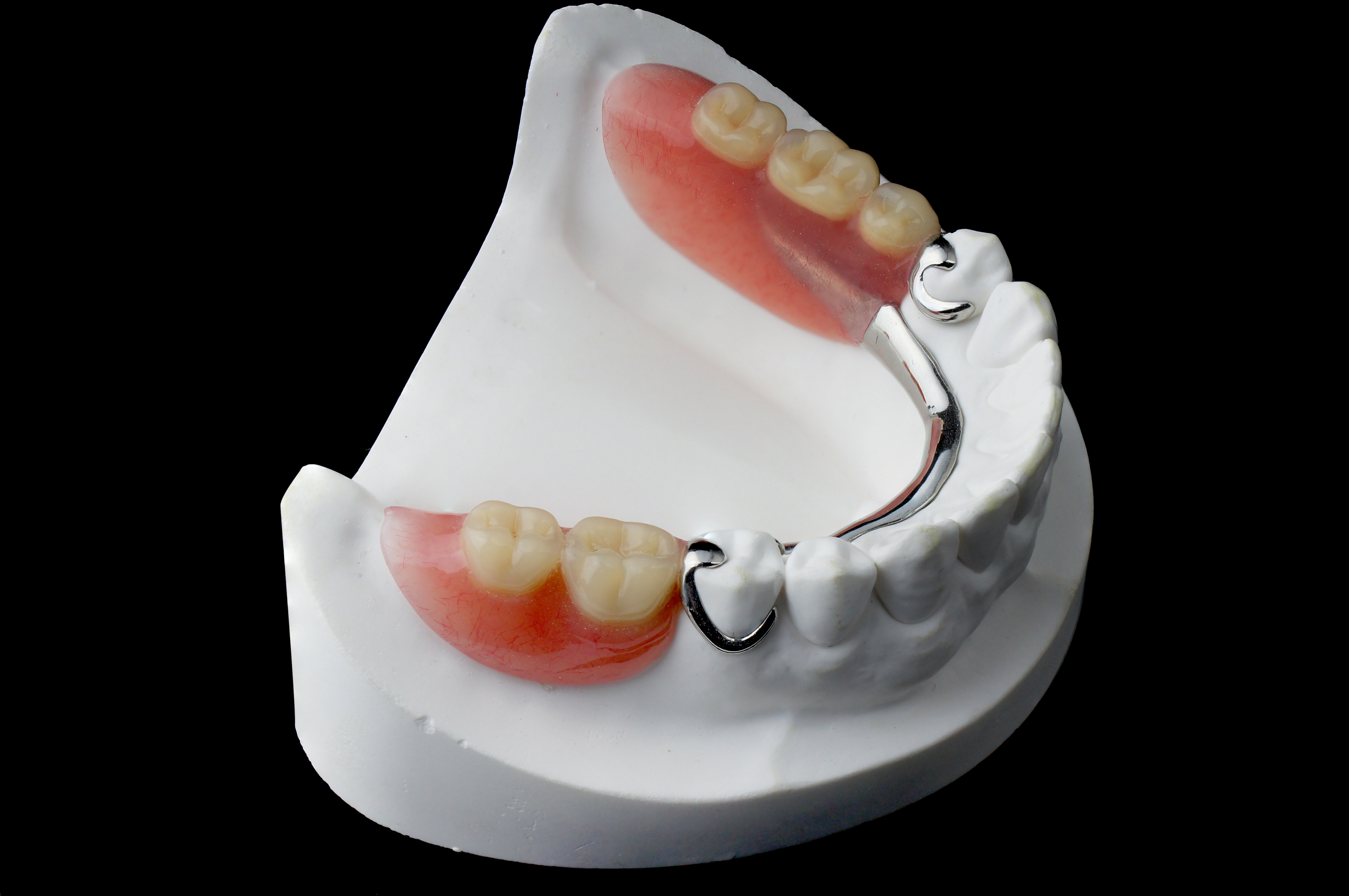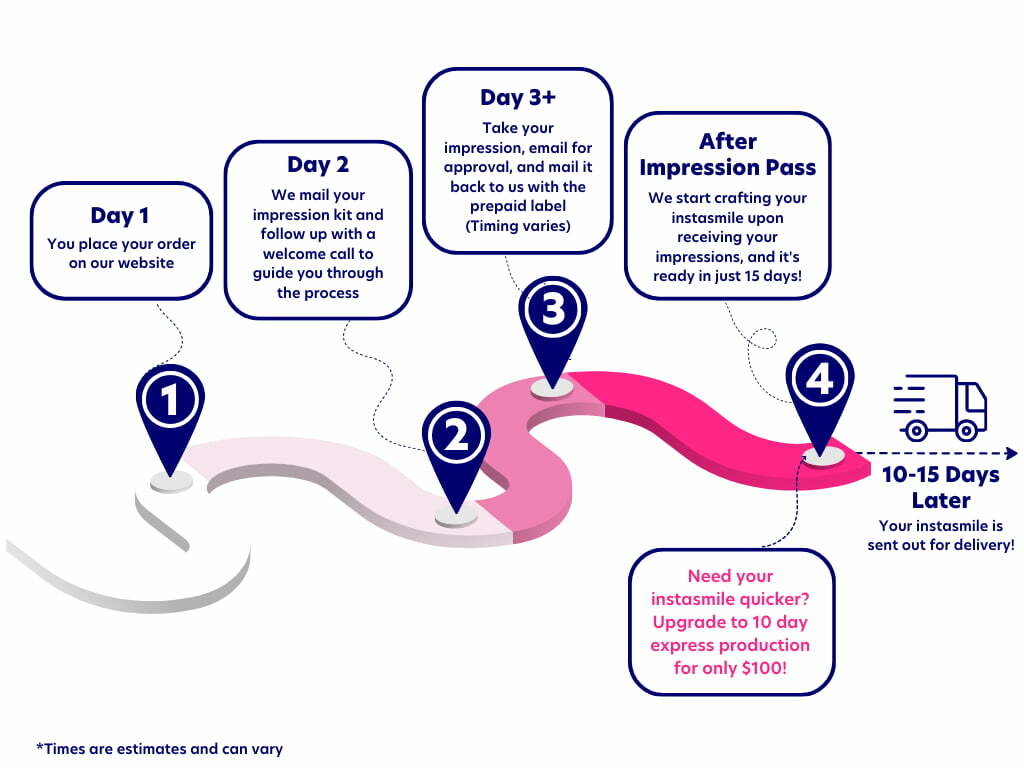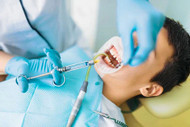Wearing dentures for the first time
It's not unusual to feel a little nervous when getting dentures for the first time. After all, you're trusting a dental professional to create a new smile that looks natural and feels comfortable. To help put your mind at ease, here are eight things to know about getting dentures:
1. The type of fake teeth you get is personal
When it comes to fake teeth, there are almost as many options as there are reasons for needing them. Whether your real teeth are stained, chipped, missing, or just in need of a bit of a makeover, there's a set of false teeth out there that's perfect for you. Crowns, bridges, porcelain veneers, implants, invisalign, and smile direct club are all popular choices, but they can be expensive and time-consuming. If you're looking for a more affordable and convenient option, consider Instasmile clip-on veneers. They're easy to use and can give you the perfect smile in seconds!

2. Fake teeth take time to get used to
When you first get your dentures, it may feel like you have a mouth full of foreign objects. Your new teeth may be bulky and bulky, making your lips look puffy. Don't worry, this is normal! It takes time to get used to your new set of teeth, and it could take four to eight weeks for you to feel completely comfortable with them.
3. Eating takes some practice
When you get your first set of dentures, it can be a bit of an adjustment period. Eating with dentures takes some practice, as you have to get used to the new shape of the denture base and the position of the teeth.
Your cheeks, lips, and tongue all have to readjust to accommodate for the dentures.
But don't worry, with a little time and practice, you'll be eating like a pro in no time! In the meantime, start with softer foods that are easy to chew, and cut your food into smaller pieces. And if you accidentally drop your dentures, just laugh it off - it happens to everyone!
4. Dentures require regular care and cleaning
Just like your real teeth, dentures need to be brushed daily and rinsed after each meal. In addition, you should soak your dentures in a cleaning solution overnight. Be sure to follow the directions that come with your cleaning products to avoid damaging your dentures.
5. Fake teeth can be expensive
There's nothing quite like a good smile. It's the first thing you notice about someone, and it can be the difference between a good first impression and a bad one. Unfortunately, not everyone is blessed with perfect teeth. In fact, many people suffer from stained, chipped, or missing teeth. For those looking to improve their smile, there are a few options available.
Dentures are one option, but they can be expensive and uncomfortable.
Dental implants are another option, but they're even more expensive.
Looking to save? Clip On Veneers are a much less expensive option and they aren't permanent.

6. Speaking might be a challenge
It's no secret that dentures can take some getting used to. After all, they're essentially false teeth that you have to learn to speak with. However, it's important to keep in mind that your speech will only be affected at first.
Once you've had a chance to adjust to your new dentures, you'll find that your speech will return to normal.
In the meantime, practice pronouncing words and reading aloud so that you can get used to your dentures. And don't worry - the people around you will probably be too distracted by your new teeth to notice any temporary changes in your speech!
7. Keep Old Dentures as a Backup
When it comes to dentures, it's always better to be safe than sorry. Even if your old dentures were unsightly and uncomfortable, you should keep them as a backup. Because your new dentures may require adjustments that require you to be without them for a day, having a spare set can alleviate any concerns. And who knows? Your old dentures might just come in handy one day. So hang on to them - you never know when you might need them.
8. Dentures Require Maintenance
It is critical to clean your dentures on a daily basis to avoid staining and to maintain good oral hygiene. The majority of problems that denture wearers face are caused by improper denture care.
After removing them at night, clean them with a soft bristled brush and denture cream before putting them back in the next day.
Avoid using toothpaste to clean your dentures because it is too abrasive and can damage the surface. They should be soaked in cold water overnight, with a cleaning solution added if needed to help remove stains.
Dentures should not be left to dry out for too long, and they should never be submerged in boiling water, as they may warp. To keep your mouth healthy, remember to brush your tongue, gums, and roof of your mouth every day.
See Your Dentist Regularly
If you have dentures, you should see your dentist on a regular basis so they can check for any problems. By taking good care of them, you can make your dentures last much longer. However, as your gums and jawbone shrink, your dentures may no longer fit as well as they once did, causing them to become loose or worn. If you have experienced any of the following:
- When you talk, your dentures click
- Your dentures are slipping or don't seem to fit properly
- Your dentures are causing you discomfort
- Your dentures show signs of wear
- Gum disease or tooth decay symptoms, such as bleeding gums or bad breath
- Poorly fitting or worn dentures can cause a lot of discomfort, as well as mouth sores, infections, and eating and speaking issues

Frequently Asked Questions
How to care for your dentures?
Because our mouths are brimming with bacteria, it's no surprise that artificial teeth require daily cleaning.
Depending on the type of false teeth (see false teeth online) you have, your dentist will advise you on the best way to clean them. Taking out partial dentures, for example, can make brushing your teeth easier at night.
Cleaning solutions designed specifically for dentures can be used to keep them clean. Depending on the materials used to make false teeth, different solutions are required, so consult your dentist for advice.
When to remove your dentures?
It's generally recommended that you remove your dentures before going to bed. This gives your gums a chance to rest and also prevents them from becoming stained while you sleep.
You should also take out your dentures if you're experiencing any discomfort, such as soreness or irritation. If this occurs, soak the false teeth in cold water and consult your dentist for advice.
What to do if your dentures break?
If your dentures break, it's important to see your dentist as soon as possible. In the meantime, try to avoid using them if possible and store them in a safe place where they won't get damaged further.
If you're experiencing pain or discomfort, take over-the-counter pain medication and rinse your mouth with warm salt water.
What to expect when you start wearing dentures?
It can take a while to get used to your new dentures, and it could take 4-8 weeks before you are completely comfortable with them. They may appear bulky at first and feel as if they are pushing your lips out, but this is completely normal and will pass with time.
Check out temporary vs permanent dentures.



 UK
UK
 USA
USA
 Australia
Australia

